The UCL Institute for Innovation and Public Purpose is proud to host a Commission to solve grand challenges in innovation and industrial strategy with a mission-oriented framework.
The Commission is co-chaired by Prof Mariana Mazzucato and Lord David Willetts and is made up of key UCL academics and world-leading industry experts from cross-disciplinary institutions.
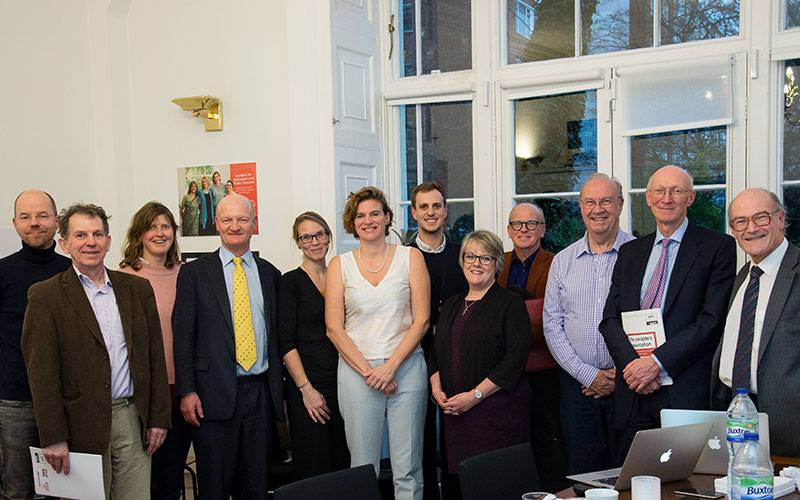
Commission Members
Co-chairs
- Prof Mariana Mazzucato, Professor in the Economics of Innovation and Public Value, Founder and Director, Institute for Innovation and Public Purpose, UCL
- Professor Mariana Mazzucato (PhD) holds the Chair in the Economics of Innovation and Public Value and is Director of the Institute for Innovation & Public Purpose, University College London (UCL).
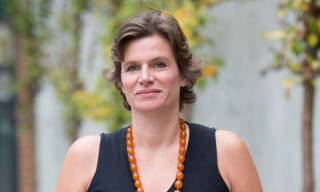
Mazzucato’s highly-acclaimed book The Entrepreneurial State: debunking public vs. private sector myths (Anthem 2013; Public Affairs, 2015) was on the 2013 Books of the Year list of the Financial Times. She is winner of the 2014 New Statesman SPERI Prize in Political Economy ,the 2015 Hans-Matthöfer-Preis and the 2018 Leontief Prize for Advancing the Frontiers of Economic Thought. In 2013 she was named as one of the '3 most important thinkers about innovation' in the New Republic.
She advises policy makers around the world on innovation-led growth and is currently a member of the Scottish Government’s Council of Economic Advisors; the UN Sustainable Development Solutions Network Leadership Council; and SITRA’s Advisory Panel in Finland.
Her current research projects include two funded by the EC Horizon 2020 programme: Innovation-fuelled, Sustainable, Inclusive Growth (ISIGrowth) and Distributed Global Financial Systems for Society (Dolfins) and new projects on Rethinking Medical Innovation, funded by the Open Society Foundations, and on mission-oriented innovation policies with the Inter-American Development Bank (IADB).
Her recent research also includes projects funded by the Ford Foundation and the Institute for New Economic Thinking, and work commissioned by NASA, the European Space Agency.
She is co-editor of a new book, Rethinking Capitalism: Economics and Policy for Sustainable and Inclusive Growth (Wiley Blackwell, July 2016). Her new book The Value of Everything, will be published by Penguin (Allen Lane) in 2018.
- Rt Hon. Lord David Willetts, Executive Chair of the Resolution Foundation
- Lord Willetts served as the Member of Parliament for Havant (1992-2015), as Minister for Universities and Science (2010-2014) and previously worked at HM Treasury and the No. 10 Policy Unit.
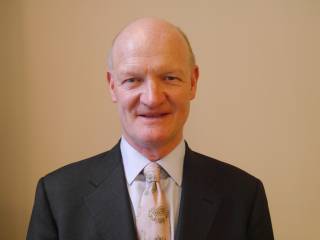
Lord Willetts is a visiting Professor at King’s College London, a board member of UK Research and Innovation (UKRI), a Board member of Surrey Satellites and of the Biotech Growth Trust, Chair of the British Science Association, a Governor of the Ditchley Foundation and a member of the Council of the Institute for Fiscal Studies. He is a member of the Board of the Crick Institute and a Trustee of the Science Museum. He is an Honorary Fellow of Nuffield College Oxford.
Lord Willetts has written widely on economic and social policy. His book ‘The Pinch’ about fairness between the generations was published in 2010. His latest book “A University Education” is published by Oxford University Press.
Members
- Lord Victor Adebowale, CEO of Turning Point
- Victor is the CEO of Turning Point, a social enterprise providing health and social care interventions to approximately 77,000 people on an annual basis.
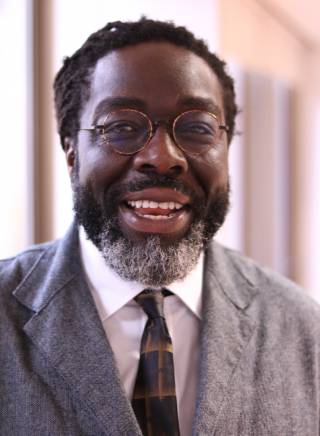
Victor sits as a Non-Executive Director on the boards of NHS England, the Co-Operative Group, Collaborate CIC, IOCOM and Leadership In Mind, he is also the Chair of Social Enterprise UK. Victor has chaired a number of commission reports into; policing, employment, mental health, housing and fairness for The London Fairness Commission, the Met Police and for central & local government. He was awarded CBE for services to the unemployed and homeless people, and became a crossbench peer in 2001.
Victor is a visiting Professor and Chancellor at the University of Lincoln; an honorary member of the Institute of Psychiatry; President of The International Association of Philosophy and Psychiatry and a Governor at The London School of Economics. Victor has an MA in Advanced Organisational Consulting from Tavistock Institute and City University.
- Mike Bracken, Partner Public Digital, Founder Gov.Uk
- Mike is Chief Digital Officer for the Co-operative Group, a Manchester based £10bn mutual commercial institution. He is also a partner in public.digital, a consultancy which transforms Governments and large public institutions.
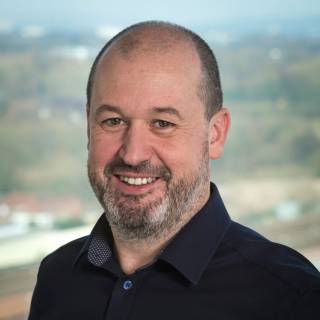
Mike was appointed Executive Director of Digital for the UK Government in July 2011. He was responsible for overseeing and improving the Government’s digital delivery of public services.
Prior to joining the Government, Mike worked at Guardian News & Media as Digital Development Director for nearly four years; helped set up e-democracy site My Society and was a Director/Shareholder at technical services company Wavex.
- Theo Blackwell , Chief Digital Officer for London
- As London’s first Chief Digital Officer, Theo will play a leading role in realising the Mayor’s ambition to make London the world’s smartest city, ensuring that the capital’s status as a global tech hub helps transform the way public services are designed and delivered, making them more accessible, efficient and responsive to the needs of Londoners.
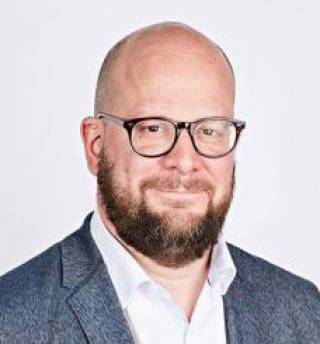
Theo joins with extensive public and private sector experience. As Cabinet member for Finance, Technology & Growth at Camden council, Theo established Camden as London’s leading digital borough through its use of public data – and this year they received national recognition as Digital Leaders ‘Council of the year’. He’s worked at GovTech accelerator Public Group, advising start-ups on the growing market in local public services, and was previously Head of Policy & Public Affairs for the video games industry’s trade body, Ukie.
- Prof Brian Collins, CB, FREng, Professor of Engineering Policy, CEGE, UCL
- Professor Brian Collins is Professor of Engineering Policy at University College London. He is a co-investigator on a £10M research programme investigating liveable cities for the future. He is also PI for a research project, International Centre for Infrastructure Futures (ICIF), looking at new business models for infrastructure modernization. He is the convenor of UKCRIC, a newly formed multi university multi-million pound research endeavor to transform infrastructure research in the UK.
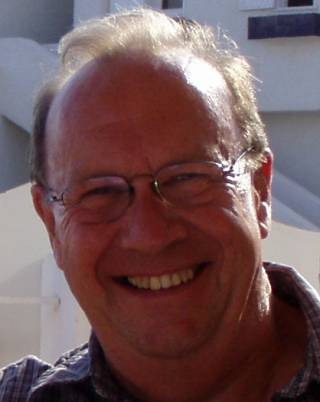
The UKCRIC vision addresses the insufficient and unsustainable value extracted by services using national infrastructure. UKCRIC’s overarching objective is to create and operate a national and international multidisciplinary research programme that addresses the issues of unaffordable and unsustainable infrastructure development and operation, in a partnership between Industry, Government and Academia.
To achieve this, UKCRIC starts with enhanced capital investment in shared facilities in academic institutions, but will involve further development of a wide range of multidisciplinary research and teaching programmes. He was the Chief Scientific Adviser (CSA) for the UK Department for Transport (DfT) and CSA for the Department for Business, Innovation and Skills (BIS) from 2006 to 2011.
In 2009 Professor Collins was elected a Fellow of the Royal Academy of Engineering. In the 2011 New Year Honours List, he was bestowed by Her Majesty the Queen the Honour of Companion of the Bath (CB). Professor Collins holds a MA in Physics and a DPhil in Astrophysics from the University of Oxford.
- Prof Paul Ekins OBE, Director, Inst. for Sustainable Resources, UCL
- Paul Ekins has a Ph.D. in economics from the University of London and is Professor of Resources and Environmental Policy and Director of the UCL Institute for Sustainable Resources at University College London. He is also Deputy Director of the UK Energy Research Centre, and is the Co-Director in charge of its Energy Resources theme. He was a Member of the Royal Commission on Environmental Pollution from 2002-2008. He also has extensive experience consulting for business, government and international organisations.
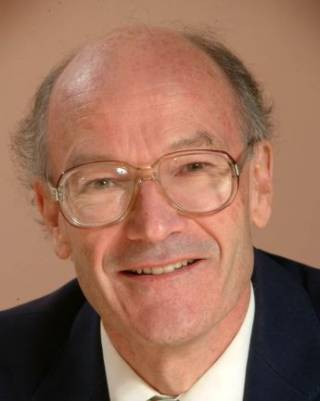
Paul Ekins’ academic work, published in numerous books, articles and scientific papers, focusses on the conditions and policies for achieving an environmentally sustainable economy. His book Economic Growth and Environmental Sustainability: the Prospects for Green Growth appeared in 2000. In 2012-14 he was the Chair of the UCL Green Economy Policy Commission. He was also a Member of the European Resource Efficiency Platform and Vice-Chair of the previous European Environment Commissioner’s Expert Economists’ Group on resource efficiency.
He is a member of UN Environment’s International Resource Panel (IRP), and was the lead author of the IRP’s report on resource efficiency commissioned by the G7 governments and presented in Japan in 2016. In 2016 he was appointed a Co-Chair of GEO-6 – the sixth edition of UN Environment’s flagship Global Environment Outlook.
In 2017 he became a Co-Chair of the new Research Committee on Natural Capital set up by the Green Growth Knowledge Platform. In 1994 Paul Ekins received a Global 500 Award ‘for outstanding environmental achievement’ from the United Nations Environment Programme. In the UK New Year’s Honours List for 2015 he received an OBE for services to environmental policy.
- Prof Luke Georghiou, Deputy President and Deputy Vice-Chancellor, University of Manchester
- Professor Luke Georghiou is the University’s Deputy President and Deputy Vice-Chancellor. From 2010 to 2017 Luke was responsible for the University’s research strategy and its implementation and doctoral training. He continues in his new role to be responsible for business engagement and commercialisation activities. He is active in research and policy advice to governments and business with current work on innovation management, public procurement and innovation and evaluation of the national demonstrator project for Internet of Things (CityVerve).
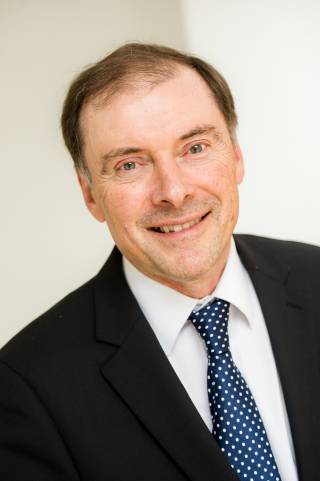
Luke is a member of RISE, the European Commissioner for Research and Innovation’s high-level policy advisory group. He has chaired and been a member of several high-level inquiries and advisory bodies, including being rapporteur of the influential Aho Group report to European leaders, 'Creating an Innovative Europe' which put demand-side innovation policy onto the political agenda. He was Co-Champion of the 2016 Euroscience Open Forum (ESOF), Europe’s largest pan-disciplinary science conference.
Luke is currently a member of the Board of Directors of Manchester Science Partnerships, the UK’s largest science park company. Since 2016 he has chaired the Steering Committee of the European Universities Association Council for Doctoral Education.
He was elected to the Academia Europaea in 2011. He has published extensively in leading outlets. He holds a PhD (1982) and BSc from The Victoria University of Manchester.
- Hermann Hauser, Entrepreneur, co-founder of Amadeus Capital
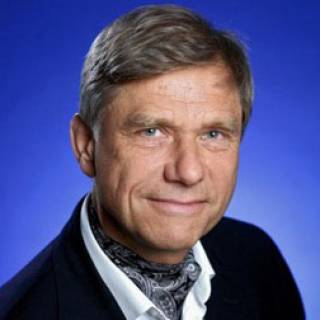
As a science-based innovator and serial entrepreneur, Hermann has successfully developed and financed over 100 high-tech companies whilst offering inspiration and mentorship to the next generation of entrepreneurs.
He is best known for setting up Acorn Computers — developer of the iconic ‘BBC Micro’ — in 1978 and its spin-out, microchip design company ARM Holdings, in 1990. He went on to co-found Amadeus Capital Partners in 1997, a venture capital company through which he has built several technology companies. These include Solexa, a next-generation DNA sequencing firm that was sold to biotech giant Illumina for $600 million in 2007 and CSR (Cambridge Silicon Radio)which was sold for $2.5bn to Qualcomm.In 2001, Hermann received an honorary CBE for his innovative service to the UK enterprise sector and an honorary KBE in 2015. As the author of a 2010 influential report, he called for the UK government’s investment in a network of technology and innovation centres. This led to the creation of ‘Catapult’ centres, which are helping small firms and university spin-outs to commercialise their prototypes.
Hermann is a Fellow of the Institute of Physics and of the Royal Academy of Engineering and an Honorary Fellow of King's College, Cambridge. In 2004 he was made a member of the Government’s Council for Science and Technology and in 2013 he was made a Distinguished Fellow of BCS, the Chartered Institute for IT.
Hermann has honorary doctorates from the Universities of Loughborough, Bath, Anglia Ruskin, The University of Strathclyde, and the University of Glasgow.
- Dan Hill, Associate Director at Arup, and Head of Arup Digital Studio
- A designer and urbanist, Dan’s previous leadership positions have produced innovative, influential projects and organisations, ranging across built environment (Arup, Future Cities Catapult), education and research (Fabrica), government and social innovation (the Finnish innovation fund, SITRA), and media (BBC and Monocle), each one transformed positively via digital technology and a holistic approach to design. He has lived and worked in the UK, Australia, Finland and Italy.
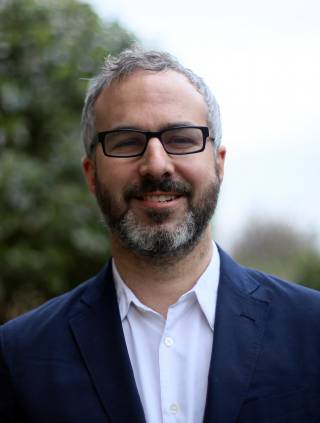
He is a Visiting Professor at UCL Bartlett Institute for Innovation and Public Purpose in London and an Adjunct Professor at RMIT University in Melbourne and University of Technology Sydney. Dan is also one of the Mayor of London’s Design Advocates.
Amidst much published work, in academic journals, books and media, he is the author of the influential book “Dark Matter & Trojan Horses: A Strategic Design Vocabulary” (Strelka Press, 2012) and since 2002 has written the groundbreaking blog, City of Sound, now at http://medium.com/@cityofsound
- Prof Sue Himmelweit, Emeritus Professor of Economics at the Open University, Womens Budget Group
- Susan Himmelweit’s research interests are in economic theory and policy relating to care, gender inequalities within households, and the gender implications of economic policy, including industrial policy. She was the founding Chair of the UK Women's Budget Group, a think tank that analyses the gender impact of government policy, and remains an active member and co-ordinator of its Policy Advisory Group.
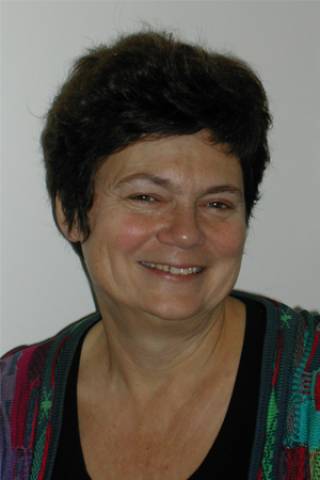
She has been on various advisory bodies, including for the UK Equality and Human Rights Commission as a member of its expert groups on “Working Better”, “Making Fair Financial Decisions” and “Cumulative Equality Impact Assessment”. In 2009, she was the President of the International Association for Feminist Economics (IAFFE), and from 1996 to 2012, an Associate Editor of its journal Feminist Economics.
She is a co-author of two reports by the Women’s Budget Group for the International Trade Union Confederation and UN Women, on Investing in the care Economy, both available at: http://www.ituc-csi.org/. Her latest book is “Economics and Austerity in Europe: Gendered impacts and sustainable alternatives” co-edited with Hannah Bargawi and Giovanni Cozzi and published by Routledge (2016).
- Prof Daniel Hochhauser, Kathleen Ferrier Professor of Medical Oncology, Head of Research Department of Oncology, Clinical Director CRUK UCL Centre, Cancer Institute, UCL
- Daniel Hochhauser is Kathleen Ferrier Chair in Medical Oncology at UCL Cancer Institute and consultant medical oncologist UCLH Trust. He qualified from the Royal Free Hospital Medical School in 1983 following studies in medicine and social and political science at Cambridge and Harvard universities.
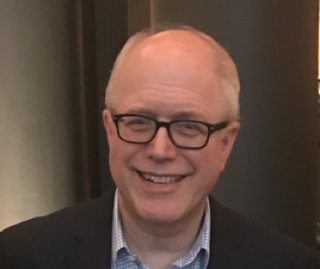
After junior hospital appointments in London and Oxford, he completed a D.Phil at Oxford University in cancer biology. Subsequently, Professor Hochhauser trained as a clinical fellow and continued research at Memorial Sloan-Kettering Cancer Center, New York, before appointment as Senior Lecturer and consultant at the Royal Free Hospital in 1996. He was appointed Kathleen Ferrier Chair in Medical Oncology in 2007. Research is focussed on development of novel targeted therapies and clinical trials. Specific projects are directed on the epidermal growth factor receptor (EGFR) pathway in cancer.
Professor Hochhauser is Co-Director of the Cancer Research UK UCL Centre and Head of the Research Department of Oncology, UCL Cancer Institute. He is a member of MRC Molecular and Cellular Medicine Board (MCMB) and CRUK Science Committee and a former member of NICE Technology Committee.
In 2017 he was appointed Co-Chair of the UCL Cancer Domain encompassing all aspects of cancer research within the university.
- Dan Hodges, Head of Economics, Analysis, and Market Insight at Innovate UK.
- Dan joined Innovate UK in 2013, establishing our in-house economics function. He now leads the multi-discipline analytical team, covering evaluation, analysis, research, and insight.

Dan’s previous career spanned a range of roles across the Government Economic Service, which he joined after graduating from an Economics BA at the University of Sussex. He has conducted analysis and evaluation on topics including health and safety legislation, space, and employment programmes.
Whilst leading the Innovation Analysis team at the Department of Business, Innovation and Skills he completed a postgraduate economics MSc at Birkbeck College, University of London, which included a detailed study of the links between innovation and productivity in UK firms. - Prof Cathy Holloway, Associate Professor, UCL Interaction Centre, co-founder, Global Disability Innovation Hub
- Dr Cathy Holloway is an Associate Professor in UCL’s Interaction Centre and the Academic Director and co-founder of the Global Disability Innovation Hub (GDI Hub).
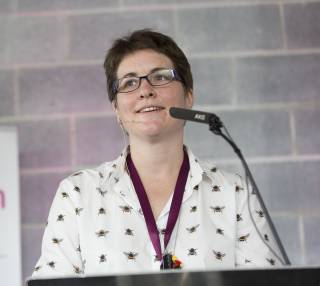
GDI Hub exists to accelerate disability innovation for a fairer world and Cathy’s research revolves around supporting this aim. GDI Hub is part of a partnership which has grown out of the Paralympic Legacy and is based on the Queen Elizabeth Olympic Park; it crosses traditional discipline boundaries to help realise the Sustainable Development Goals.
Cathy’s research portfolio includes the development of new prosthetics; the use of the Internet of Things to automate the creation of city-level accessibility maps for wheelchair users; and the development of robots. The prosthetics work utilises nanotechnology with materials expertise as well as bespoke sensor systems to develop prosthetics and rehabilitation systems which can be delivered beyond clinical environments both in the UK and in lower income countries.,
Prior to joining UCL Cathy worked as a Research and Development Engineer and Innovation Leader for Medtronic. Cathy has delivered a range of keynote presentations including to the British Council in Tokyo, the World Health Organisation and at the Paralympics in Rio. - Prof Alan Hughes, Professor of Innovation, Imperial College Business School, London, Distinguished Visiting Professor Lancaster University Management School, and Margaret Thatcher Professor Emeritus, Judge Business School University of Cambridge
- Professor Hughes is a Life Fellow of Sidney Sussex College, Cambridge and a former Director of the Centre for Business Research at Cambridge and of the UK Innovation Research Centre (UK-IRC) a joint-venture between the Centre for Business Research and Imperial College Business School. He was from 2000 - 2003 Director of the National Competitiveness Network of the Cambridge-MIT Institute. He has held Visiting Professorships in the USA, Japan ,France and Australia.
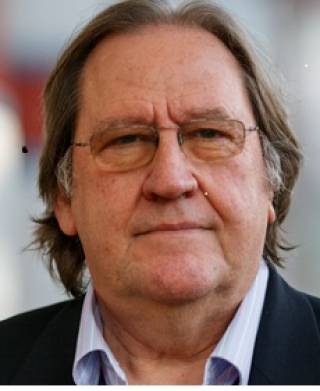
He is an internationally leading scholar and policy adviser on science, innovation and industrial policy and was from 2004-2014 a Member of the UK Prime Minister’s Council for Science and Technology . He has, with colleagues at Cambridge, Imperial and Bath carried out a long-term programme of surveys of academic interaction with external organisations covering around 40,000 academics in all disciplines in all UK universities. He also has extensive research experience spanning over 25 years in the conduct of periodic large-scale surveys of the UK SME population. He was a member of the Foresight Lead Expert Group for the recent review of the Future of UK Manufacturing and the follow up Report on Manufacturing Metrics.
His research interests, on which he has published extensively, include industrial and technology policy; the measurement of innovation; the growth, innovation and financial and acquisition characteristics of business enterprise; the measurement and evaluation of industrial and business support policy; and the relationship between law and economics in the analysis of corporate organisation and performance.
- Prof Jackie Hunter CBE, CEO BenevolentBio
- Jackie is CEO of BEnevolentBio, the bioscience subsidiary of BenevolentAI one of the worlds leading private AI companies, where she leads the application of BenevolentAI’s technology for drug development.
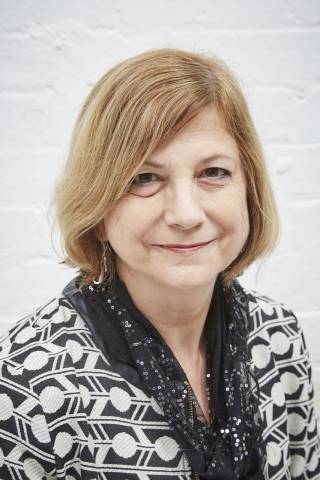
Before joining BenevolentBio Jackie had a long and prestigious career on the pharmaceutical sector including serving on the senior management team at GSK. She is a Fellow of the British Pharmacological Society and of the Academy of Medical Sciences.
For services to the pharmaceutical industry she was awarded a CBE in 2010 Birthday Honours and the 2010 Women of Achievement in Science, Engineering and Technology Award for Discovery, innovation and Entrepreneurship.
- Prof Rainer Kattel, Deputy Director, Institute for Innovation and Public Purpose, UCL
- Rainer has published extensively on innovation policy and its governance. He has also served on numerous public policy commissions including the Estonian Research Council and European Science Foundation. He has worked as an expert for the OECD, UNDP and the European Commission.
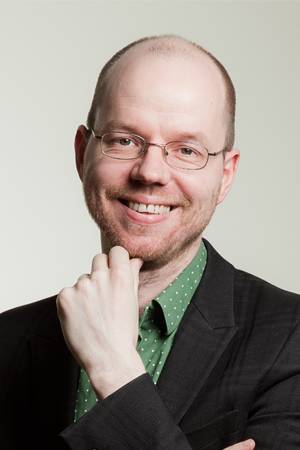
Currently, he leads the Estonian Government’s Gender Equality Council.
His recent books include The Elgar Handbook of Alternative Theories of Economic Development (co-edited with Erik Reinert and Jayati Gosh; Elgar, 2016) and Innovation Bureaucracy (with Wolfgang Drechsler and Erkki Karo; Yale), forthcoming in 2018. @rainerkattel
- Prof Sir David King, Partner, Global Apollo Programme for clean energy, SYSTEMIQ
- Professor Sir David King is a Partner of SYSTEMIQ. He was the UK Government Chief Scientific Adviser, 2000-2007, the Foreign Secretary’s Special Representative on Climate Change, 2013-2017, working with 165 Climate Change Attaches in UK Embassies, and Chair of Future Cities Catapult, 2012-2016. He travelled widely to persuade all countries to take action on climate change.
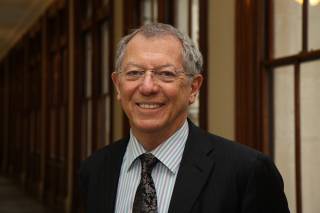
He initiated an in-depth risk analysis approach to climate change, working with the Governments of China and India in particular (Climate Change: a Risk Assessment), and initiated a collaborative programme, now known as Mission Innovation, to create a $25bn pa research and development international exercise, which involves 22 countries and the EC, to deliver all technologies needed to complete the transition into a fossil-fuel-free world economy. He has published over 500 papers on science and on science and politics.
Elected Fellow of the Royal Society in 1991; Foreign Fellow of the American Academy of Arts and Sciences in 2002; knighted in 2003; made “Officier dans l’ordre national de la Légion d’Honeur” by the President of France in 2009 . He has received 23 Honorary Degrees from universities around the world.
- Prof Tom Kirkwood CBE, Associate Dean for Ageing, Newcastle University
- Tom Kirkwood is Professor Emeritus at Newcastle University, where he directed the Institute for Ageing and Health since 2004 and was Dean for Ageing from 2010-2015. He now also holds a part-time professorship at the University of Copenhagen Centre for Healthy Ageing.
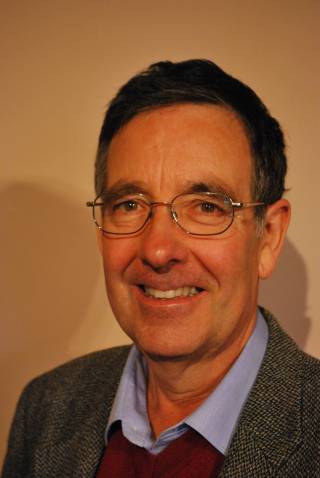
He initiated and led a major population-based investigation (the Newcastle 85+ Study) examining the spectrum of health and associated biological, functional and psychosocial measures in a cohort of very old people. He is a Fellow of the Academy of Medical Sciences and works with bodies in the business, professional and voluntary sectors, as well as advising government and international organizations on aspects of population ageing.
He has contributed extensively to shaping the public debate on ageing through frequent contributions to television, radio, and print media. His books include the award-winning ‘Time of Our Lives: The Science of Human Ageing’, ‘Chance, Development and Ageing’ (with Caleb Finch), ‘The End of Age’ based on his 2001 BBC Reith Lectures, and ‘An Age of Wonders: the Story of the Newcastle 85+ Study’ (with Gordon Morris). He is a trustee of Age International.
- Charles Leadbeater, Author: We Think, Visiting Professor at IIPP
- Charles Leadbeater works internationally as an advisor on innovation strategy to companies, cities and governments. After leaving the Financial Times, where he was Industrial Editor, he became an independent writer, policy advisor and social innovator. He drafted the 1998 government White Paper: Building the Knowledge Driven Economy. His publications include The Rise of the Social Entrepreneur, Living on Thin Air and We Think: from mass production to mass innovation.

- Prof Helen Margetts, Professor of Society and the Internet, Director, Oxford Internet Institute
- Helen Margetts is a political scientist specialising in digital era governance and politics, investigating political behaviour and political institutions in the age of the internet, social media and big data.
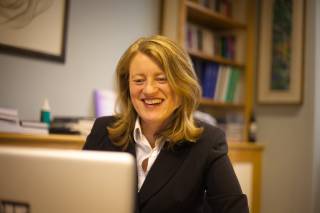
She has published over a hundred books, articles and major research reports in this area, including Political Turbulence: How Social Media Shape Collective Action (with Peter John, Scott Hale and Taha Yasseri, 2015); Paradoxes of Modernization (with Perri 6 and Christopher Hood, 2010); Digital Era Governance(with Patrick Dunleavy, 2006); and The Tools of Government in the Digital Age (with Christopher Hood, 2007).
In 2003 she and Patrick Dunleavy won the ‘Political Scientists Making a Difference’ award from the UK Political Studies Association, in part for a series of policy reports onGovernment on the Internet for the UK National Audit Office (1999, 2002 and 2007), and she continues working to maximise the policy impact of her research.
She is editor-in-chief of the journal Policy and Internet. She is a fellow of the Academy of Social Sciences and a Faculty Fellow of the Alan Turing Institute for Data Science.
- Lord Prior Of Brampton, Chairman, University College London Hospitals NHS Foundation Trust
- Lord Prior started as Chairman of UCLH NHS Foundation Trust in January 2018, taking over from Richard Murley. Lord Prior was educated at Charterhouse School and Pembrooke College, Cambridge where he gained an exhibition and MA in Law.

He worked for Lehman Brothers and Lazard Freres in New York training as an investment banker and qualified as a barrister in 1976, becoming a member of Gray’s Inn. He has held a number of senior positions within the industrial sector, including British Steel and was also elected MP for North Norfolk in 1997 and served until 2001. He has served as Chairman of Norfolk & Norwich University Hospitals NHS Foundation Trust and also Chairman of the Care Quality Commission.
In 2015, he was appointed Parliamentary Under Secretary of State for Health and created a Life Peer. In December 2016, he was appointed as Parliamentary Under Secretary of State at the Department of Business, Energy & Industrial Strategy stepping down from this role in December 2017 to join UCLH.
- Carol Sinclair, Associate Director, Public Health & Intelligence, NHS National Services Scotland (NSS)
- Carol has responsibility for a varied strategic portfolio including consultancy, research and knowledge services. In the last two years, she has taken on a champion and advocacy role for the Scottish Government’s CivTech® programme and as a founding Challenge Sponsor is committed to promoting this highly innovative approach to organisations across the public sector. She believes that partnerships and collaborations with innovative academic and business partners must be embraced to address the challenges faced by the NHS and public sector services to reduce the inequity of outcomes in Scotland and beyond.
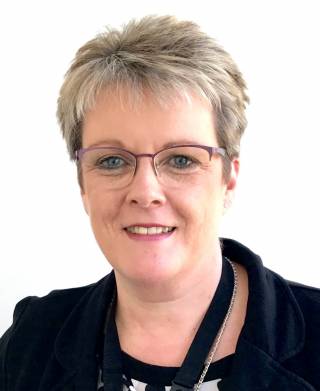
Prior to joining NSS, Carol held a number of senior posts in the NHS and Scottish Government. She has also worked in commercial organisations including the pharmaceutical industry. Carol’s background is in Microbiology and her career within the NHS has been wide and varied. She has worked in cancer research, clinical and public health microbiology, as well as in service redesign and modernisation.
During her time with Scottish Government she was responsible for a number of national quality improvement and infrastructure programmes and projects including four years as Director of the National Patient Experience Programme.
- Prof Alan Smith, Professor of Detector Physics, Dept of Space & Climate Physics, UCL
- Alan Smith was awarded a PhD at Leicester University in 1978 based on his X-ray study of supernova remnants. His work involved the payload development and flight of a Skylark sounding rocket from Woomera, South Australia. Between 1984-1990 he worked for the European Space Agency at its technology centre in the Netherlands as both an astrophysicist and as an instrument developer. His early career involved a combination of technology development, systems engineering, project management and astrophysics.
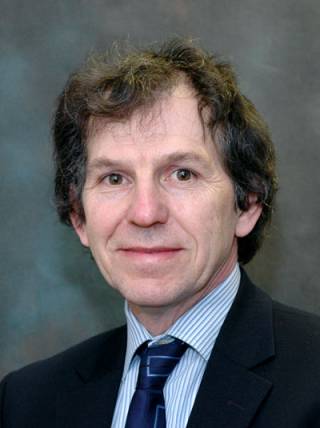
In 1990 he joined University College London’s Mullard Space Science Laboratory, initially as Head of Detector Physics eventually becoming Director and Head of Department (2005-2017). In 1998 he was made a Professor of Detector Physics. He has been Director of UCL’s Centre for Advanced Instrumentation Systems (1995-2005), a Co-Director of the Smart Optics Faraday Partnership (2002-2005), founding Director of the Centre for Systems Engineering (1998-2017), Vice-Dean for Enterprise for the faculty of Mathematical and Physical Sciences (2007-2015). He is currently the founding director of UCL’s Space Domain.
Alan has been involved in numerous space science missions and is currently the UK instrument lead for the ESA exoplanet mission PLATO. He is a Fellow of the Royal Astronomical Society and of the Association of Project Management.
- Prof Sir Alan Wilson FBA, FAcSS, FRS, Professor of Urban and Regional Systems in the Centre for Advanced Spatial Analysis, UCL
- Alan Wilson's role on the Commission ended August 2018. Sir Alan Wilson is Chief Executive of the Alan Turing Institute and Professor of Urban and Regional Systems in the Centre for Advanced Spatial Analysis at University College London. He is Chair of the Home Office Science Advisory Council. He was responsible for the introduction of a number of model building techniques which are now in common use internationally – such as the use of ‘entropy’ in building spatial interaction models – summarised in Entropy in urban and regional modelling.
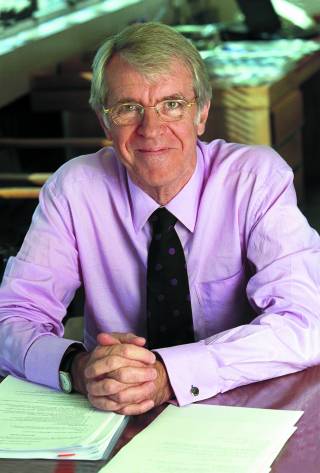
His current research is on the evolution of cities and global dynamics He writes the Quaestio blog on research and interdisciplinarity. He was Vice-Chancellor of the University of Leeds from 1991 to 2004 when he became Director-General for Higher Education in the then DfES. From 2007-2013 he was Chair of the Arts and Humanities Research Council, and from 2013-2015, of the Lead Expert Group for the Government Office for Science Foresight Project on The Future of Cities.
He is a Member of Academia Europaea, an FBA, an FAcSS and an FRS. He was knighted in 2001.
His recent books include Knowledge power (2010), The science of cities and regions (2012), his five volume (edited) Urban modelling (2012), (with Joel Dearden) Explorations in urban and regional dynamics (2015), two edited volumes, Global dynamics and Geo-mathematical modelling (2016) and (with Francesca Medda and others) Collaborative approach to trade: enhancing connectivity in sea- and land-locked countries (2017).
 Close
Close

